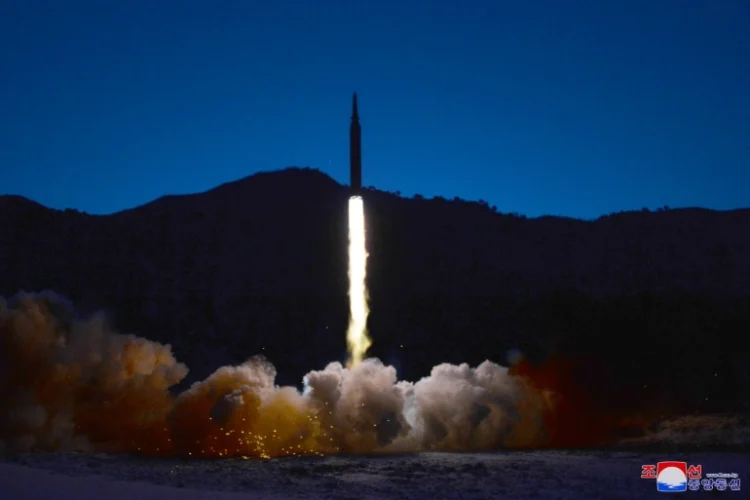By Ben Kerrigan-
Britain will work with the U.S and Australia in developing nuclear-capable hypersonic weapons, after Russia used the deadly high-speed missiles in airstrikes last month during the war in Ukraine.
The announcement comes just 2 weeks after Russia’s defense ministry admits using hypersonic missiles from Crimean airspace to attack Ukraine, and with cruise missiles from ships in the Black and Caspian Seas,
The military agreement – endorsed by Joe Biden, Boris Johnson and the Australian prime minister, Scott Morrison – is a new element in the Aukus pact, originally announced last autumn to provide nuclear-powered submarines to Canberra.
A statement from all three leaders announced a further expansion of the agreement, described as “new trilateral cooperation on hypersonics and counter-hypersonic” weapons, part of a growing militarization after the Russian invasion.
Hypersonic weapons are those that exceed five times the speed of sound.
They are harder to defend against because of their speed as well as the fact they fly at low altitudes – beyond the line of sight of ground-based radars – and can manoeuvre mid-flight.
The Aukus leaders are presenting a united front against Beijing and Moscow. “Our ability to determine their use and to counter their use will be important part of maintaining stability right across the world,” a British official said.
The U.S reportedly tested its own hypersonic missile last month, and has entered a collaboration with Australia, engaging Britain for the first time.
Stephen Lovegrove, the UK’s national security adviser, said the latest announcement demonstrated the development of Aukus. “In light of Russia’s invasion of Ukraine, it’s more important now than ever that allies work together to defend democracy, international law and freedom around the world,” he added.
Biden said last month that Russia had used its Kinzhal hypersonic missile against Ukrainian targets, describing it as “a consequential weapon” that was “almost impossible to stop”. Russia said it had used them twice, against targets near Mykolaiv and elsewhere in the west of Ukraine.
China has been testing hypersonic weapons using a different technology, known as the hypersonic glide vehicle, in which the missiles are initially launched into space and then attached to dedicated aerodynamic craft designed to bring them down to their targets on Earth.
The UK, US and Australia intend to work on researching both types of hypersonic technology – missiles and glide vehicles – and examine ways of countering the threat they may pose. “We need to understand how the overall targeting system of our adversaries might work,” a British official said.
Pentagon officials have assessed that hypersonic weapons will add $21.5bn (£16.4bn) to the navy’s budget and $7bn to the army’s in coming years, although the estimates are tentative as the technology emerges. British sources, however, said the UK had not committed to buying any hypersonic weapons, and is only engaged in a research and development phase before deciding how to proceed.
Kate Hudson, the general secretary of the pressure group CND, said she believed the extension of the Aukus pact would “further escalate global tensions at a time when the threat of nuclear war is at its highest in decades”, and it risked accelerating an arms race with China in the Asia-Pacific.
“Not to mention the fact that military budgets are already escalating – what will the opportunity cost be for embarking on a whole new class of weaponry?” Hudson added.

